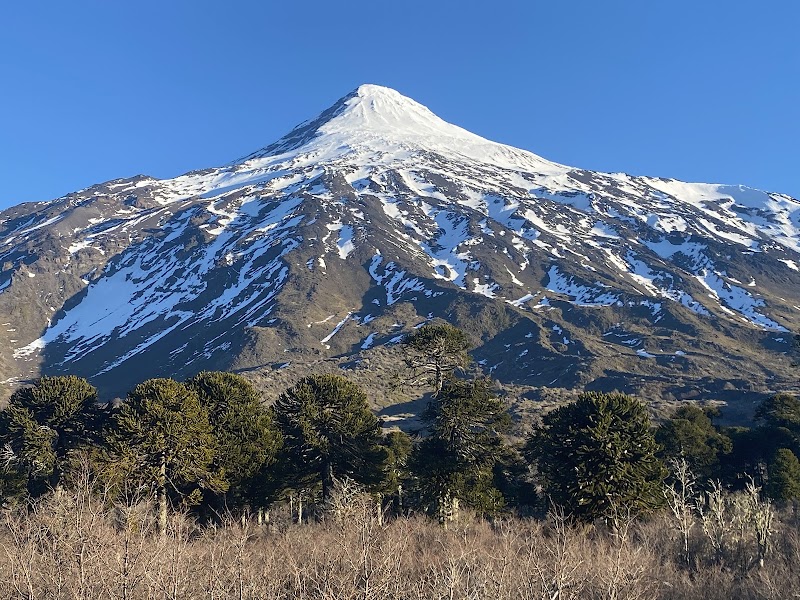
National Trout Festival in Panguipulli: An Authentic Adventure in Los Ríos
The National Trout Festival in Panguipulli offers a vibrant mix of outdoor adventure and local culture, centered on trout fishing in the pristine rivers of Chile’s Los Ríos region. Whether you’re an angler chasing the thrill or a nature enthusiast drawn to forest trails and lively celebrations, this event delivers both practical challenges and inspiring experiences.
Opt for Waterproof Footwear
Riverbanks are often slippery and uneven; waterproof hiking shoes with solid tread improve stability and comfort during fishing excursions.
Stay Hydrated Throughout the Day
Active fishing combined with variable temperatures can sap your hydration quickly; carry at least 2 liters of water and sip regularly.
Fish During Cooler Hours
Trout are most active during early morning and late afternoon; plan your fishing sessions accordingly to maximize success.
Respect Local Wildlife and Ecosystems
Be aware of habitats like beaver lodges and riverbank vegetation; minimizing disturbance helps protect the delicate balance of the area.
National Trout Festival in Panguipulli: An Authentic Adventure in Los Ríos
Each April, the National Trout Festival in Panguipulli calls anglers and nature lovers to the heart of Chile’s Los Ríos region. The town itself hums with anticipation; its streets bristle with fishing tackle stalls, fresh-caught trout sizzling over open fires, and vibrant folk music that rides the winds from nearby lakes. Beyond the festival’s lively gathering, the surrounding landscape offers a rugged playground where rivers and forests engage visitors with a fierce yet inviting character.
The main event pivots on the revered trout, a fish that dares anglers to test skill and patience against swift currents and forested streams. Panguipulli sits at 130 meters elevation, bordered by dense stands of native trees whose branches seem to lean close, whispering secrets to the wind. The fishing spots require walking along uneven riverbanks where roots clutch at your footing and stones shift underfoot. Expect to cover 3-5 kilometers per day while exploring different streams and lake shores, with elevation changes rarely surpassing 100 meters — manageable terrain that rewards with clear freshwater views and encounters with darting trout.
Hydration matters here. The crisp air and active pursuit can dry you out fast. Footwear that grips wet, uneven ground is crucial; waterproof hiking shoes are ideal. Timing your fishing around early morning or late afternoon taps into the trout’s most active windows, when they rise from the depths and the water glistens gold. In between casting, the forest hums with life: birds flitter through sun-dappled branches, leaves rustle as breezes sweep in from the nearby Andes, and the river itself dares you onward, pushing currents that pulse with wild energy.
The festival amplifies this connection to nature and culture, blending traditional Mapuche music and crafts with the practical excitement of competitive fishing. Visitors can sample trout smoked or grilled, fresh from the day’s catch, and learn local techniques from veteran anglers. The environment holds tight—while trout teem, so do beavers reshaping banks and the occasional coypu darting through reeds. Respect for this fragile ecosystem is part of the experience, urging cautious approach and thoughtful stewardship.
Ultimately, the National Trout Festival isn’t just a fishing contest – it’s a chance to engage with a landscape that is fiercely itself. With practical preparation and an eager spirit, you’ll find yourself at the edge of wild waters and communal celebration, surrounded by rivers that dare you to match their pace and forests that stand watchful and patient.
Nearby Trips
All Adventures
Boat Charters
Water Activities
Adventures near Panguipulli, Los Ríos
Discover the unique and memorable adventures that make Panguipulli, Los Ríos special.
Frequently Asked Questions
When exactly does the National Trout Festival take place?
The festival is traditionally held each April, aligning with prime trout fishing season and spring conditions in the Los Ríos region.
Are fishing licenses required to participate?
Yes, anglers must obtain temporary permits from local authorities to fish legally during the festival events.
What other activities are available besides fishing?
The festival offers live folk music, crafts markets, local gastronomy stalls, and organized hikes through nearby forests and lake areas.
Are there any notable local wildlife species to watch for?
Keep an eye out for native birds like the Chilean huet-huet and occasional sightings of river otters and beavers reshaping the riverbanks.
How challenging is the terrain around fishing sites?
Terrain varies between easy forest paths and more rugged riverbanks with roots and slippery stones, suited for moderate fitness levels.
What environmental precautions should visitors take?
Minimize foot traffic in delicate riparian zones, avoid littering, and respect local fishing regulations to preserve the habitat for future visitors.
Recommended Gear
Waterproof Hiking Shoes
Supports stable footing on slippery riverbanks and muddy paths common during spring rains.
Lightweight Rain Jacket
Offers protection from sudden showers and wind without overheating.
Reusable Water Bottle
Maintains hydration during long fishing and hiking sessions.
Polarized Sunglasses
Reduces glare on water surfaces, improving visibility of fish activity.
Local Insights
Hidden Gems
- "Small, quiet lagoons off the main river where trout often gather."
- "A rarely visited lookout near the southern forest edge offering panoramic lake views."
Wildlife
- "Chilean huet-huet (a native bird known for its haunting call)."
- "Beaver activity visibly altering riverbanks."
- "Coypu, a semi-aquatic rodent frequently seen at dawn or dusk."
History
"The festival reflects deep ties between local Mapuche traditions and the natural environment, celebrating the trout as both sustenance and cultural symbol."
